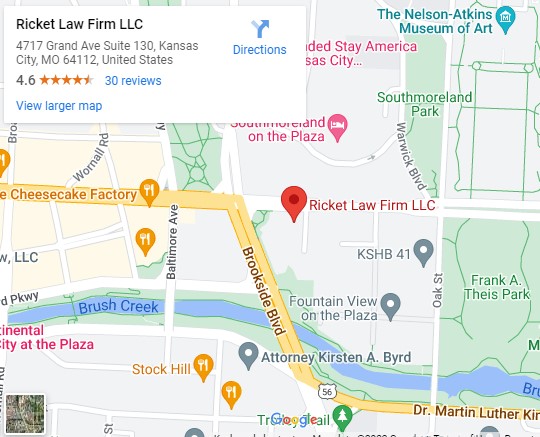When Joy Meets Challenge: Understanding the Impact of HIE on New Lives
Have you or someone you love been hurt by a birth injury? Birth should be a happy time, but sometimes mistakes happen. These mistakes can lead to serious conditions like hypoxic-ischemic encephalopathy (HIE). This is when it’s essential to have a skilled Kansas City MO hypoxic-ischemic encephalopathy attorney by your side.
HIE happens when a baby’s brain doesn’t get enough oxygen and blood. It’s a serious condition. It can cause developmental delays, cerebral palsy, and epilepsy. This area of law is all about helping the youngest victims of medical malpractice. It helps families get compensation for medical bills, care, and to make life better for children with HIE.
Here’s a Quick Summary of this Article:
- HIE happens when a baby’s brain gets too little oxygen and blood during birth. It can cause delays, cerebral palsy, impairments, and seizures.
- Key causes include issues with the umbilical cord, the placenta, birth, and the mother’s health. Prevention focuses on timely medical care. It includes good prenatal care and advanced labor monitoring.
- Early Intervention is important. Detecting and treating it early are crucial. This is especially true for therapeutic hypothermia. It minimizes HIE’s impact. Supportive care strategies are also vital.
- HIE compensation covers many costs. These include medical and rehab expenses, caregiving, education, and pain and suffering. Legal help is key to getting the full range of compensation.
Beyond the Medical Jargon: Unraveling the Mystery of Hypoxic-Ischemic Encephalopathy
HIE happens when a baby’s brain gets too little oxygen and blood at birth. This lack of oxygen can trigger a range of neurological and developmental disorders. The severity of the disorders varies based on how long the shortage lasts and how bad it is. These outcomes include, but are not limited to:
- Developmental Delays: Children with developmental delays progress more slowly. They take longer to reach milestones like sitting up, walking, or talking than their peers.
- Cerebral Palsy: This is a group of lifelong movement disorders. They appear in early childhood. Their muscles are stiff or have uncontrolled movements.
- Cognitive Impairments: These can cause difficulties with memory, problem-solving, and attention. They can affect learning and daily functioning.
- Seizure Disorders: People with seizure disorders have recurrent seizures. These are sudden, uncontrolled electrical disturbances in the brain. They can have many effects. These range from brief lapses of attention to prolonged convulsions.
Each child’s journey with HIE is unique. Their outcomes and challenges can change over time. Early diagnosis and intervention are crucial. They lessen these effects and support the child’s full development.
When Silence Speaks Volumes: Uncovering the Causes Behind HIE
Understanding HIE includes recognizing the factors that led to this condition during birth. By finding these causes, doctors and parents can work together to reduce risks. Key causes and risk factors of HIE include:
- Umbilical Cord Problems: This happens when the cord prolapses. It slips into the vaginal canal before the baby. This or compression can greatly cut the baby’s oxygen and blood flow.
- Placental Complications: This can cause issues. For example, in abruption, the placenta detaches from the womb too early. This problem can disrupt the baby’s oxygen supply.
- Delivery challenges: Prolonged or obstructed labor can delay delivery. This includes complications like shoulder dystocia, where the baby’s shoulder gets stuck. These issues can limit the baby’s oxygen intake.
- Maternal Health Issues: These can include conditions that affect the mother. One example is preeclampsia, which is high blood pressure during pregnancy. It can also reduce blood flow and oxygen delivery to the fetus.
Steps Towards Prevention and Mitigation:
Although it is not possible to prevent all cases of HIE, taking certain measures can help reduce the risk.
- Timely Medical Intervention is key. Finding and managing fetal distress or maternal issues early can lead to action. These actions, such as emergency C-sections, can save lives.
- Comprehensive Prenatal Care helps a lot. It includes regular check-ups. They can find and manage risk factors, like high blood pressure. This is before they cause complications during delivery.
- Advanced Monitoring During Labor uses modern technology. It lets healthcare providers watch the baby’s heart rate and oxygen levels. This can alert them to potential distress quickly.
Understanding these causes and taking proactive steps can reduce the risk of HIE. This ensures both mother and baby have the safest delivery.
Turning the Tide: The Crucial Role of Early Detection and Response in HIE
Recognizing HIE early and treating it promptly are key. They minimize its impact and improve a child’s prognosis. The window for some treatments is narrow. This is especially true for therapeutic hypothermia. But, it can be game-changing. Here’s how early detection and intervention play a vital role:
The Lifeline of Early Intervention:
- Therapeutic Hypothermia: This is recommended for moderate to severe HIE. It involves cooling the baby’s body to around 33.5°C (92.3°F) for 72 hours. Starting this process within 6 hours after birth greatly cuts the risk of disability. It also improves outcomes.
- Supportive Care Strategies: Alongside cooling, other supportive measures are crucial. These include:
- Maintaining optimal blood sugar and electrolyte levels
- Supporting breathing, if necessary, through mechanical ventilation
- Managing blood pressure
- Preventing and treating seizures as they occur
Keys to Effective Early Detection:
- Vigilant Monitoring: This involves continuous watching of the infant’s heart rate, breathing, and condition. This happens during and just after birth. It helps to find signs of distress early.
- Prompt Response: Healthcare teams are trained to see and act on the first signs of fetal distress. They can make quick decisions, like starting emergency care or opting for a cesarean if needed.
Parental Advocacy:
- Informed Decision-Making: Parents who know the signs of fetal distress and the need for quick action can advocate for their child well.
- Collaboration with Healthcare Providers: This builds trust with the medical team and ensures that concerns are addressed quickly. It also ensures that parents are part of the process to decide their child’s care.
Finding problems early and acting are key to managing HIE. This shows the need for awareness and readiness among both healthcare providers and expectant parents. By spotting the signs and acting quickly, the lasting effects of HIE are greatly reduced.
What Kind of Compensation Can My Child Receive?
Families affected by HIE need to understand the available types of compensation. This understanding is crucial. Compensation aims to cover the extensive care needs that may come up. It gives financial relief and support for your child’s future. Here are the main categories of compensation families might pursue:
- Medical Expenses: This includes costs for immediate and ongoing medical care. It covers surgeries, drugs, and any special treatments your child needs due to HIE.
- Rehabilitation Costs: Funding covers important therapies. These include physical, occupational, and speech therapy. They support your child’s development and quality of life.
- Caregiving Expenses: Compensation can cover the cost of professional caregiving. It can also pay family members for the big caregiving duties they take on.
- Educational Needs: Your child may need special education. They may need tutoring, and adaptive tools as they grow. Compensation can help pay for these needs.
- Pain and Suffering: This category acknowledges the pain and suffering of your child. It also acknowledges the suffering of your family. It offers money for these damages.
Each case is unique. The compensation your child may get depends on your situation and the extent of the negligence. A skilled attorney can give you legal guidance. It can help you understand and pursue the full range of compensation. This compensation will support your child’s needs and future.
Empowerment Through Action: Why Do I Need a Kansas City MO Hypoxic-Ischemic Encephalopathy Attorney?
After your child receives a diagnosis of HIE, you need to understand your legal rights. Seeking justice and compensation is the next step. The path to legal recourse can be complex. It demands knowledge and skills in medicine and law. Here’s how a dedicated legal team can make a difference:
- Understanding Your Rights: A knowledgeable attorney can explain your rights and options. They will help you grasp the legal paths for your situation.
- Investigating Medical Negligence: Skilled lawyers can investigate. They will see if negligence caused your child’s condition. They gather the evidence to build a strong case.
- Navigating the Legal Process: The legal process involves a series of steps. It starts with filing a lawsuit. Then comes negotiating settlements or representing you at trial. Experienced lawyers guide you at each step. They ensure your voice is heard and your child’s needs come first.
Partner with Ricket Law Firm LLC Now!
At Ricket Law Firm LLC, we know how hard it can be for families dealing with Hypoxic-Ischemic Encephalopathy (HIE). As your trusted Kansas City MO hypoxic-ischemic encephalopathy attorney, we are committed to getting you the justice and compensation you need. We also help with nursing home abuse, personal injury cases, and car accidents to make sure your loved ones are safe and you get the help you deserve.
Contact Ricket Law Firm LLC now. We offer caring and thorough legal consultations. Our legal team is committed to guiding you through each step. We will help you understand your rights and achieve a favorable outcome. Let’s work together to build a stronger, safer future for your family.



